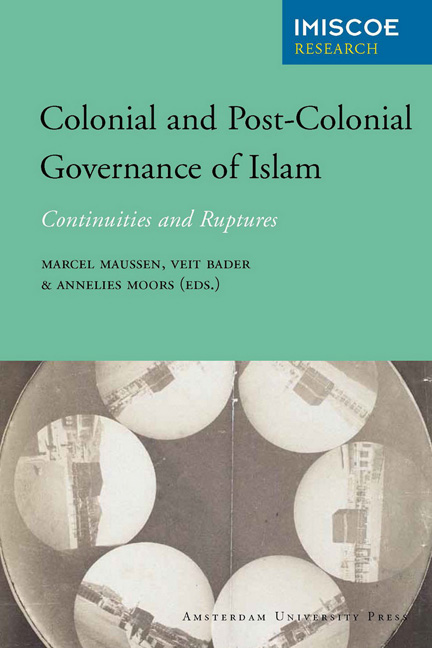4 - Ruptures? Governance in Husaynid-Colonial Tunisia, c. 1870-1914
Published online by Cambridge University Press: 05 February 2021
Summary
Introduction
In a stunning development, the French state announced in 2007 that the Institut Catholique de Paris was organising instructional courses specifically tailored for the nation's imams (Schmidt 2007). The seminars would teach Muslim leaders in France's numerous mosques how to inculcate secular, republican values and norms among their followers, the vast majority being from migrant communities and the largest by far from the Maghreb. This strange twist in the cultural politics of immigration and religion followed years of acrimonious debate over the veil in France (and Europe) that culminated in the 2004 ban on the wearing of conspicuous signs of religious affiliation in public schools (Scott 2007). The next year, the centenary of church-state separation was celebrated in France to mark the passage of the 1905 law. That the two long-standing bêtes noires of the republic - the Catholic Church and Islam - have been recast as collaborators in a state-financed enterprise to promote the idea of the citizen seemed not only curious but also somewhat surreal. For historians of modern North Africa, the announcement conjured up the nineteenth century, although the principal historical actors, at times locked in three- way struggles, had been reconfigured in novel ways to serve the needs of the present. Nevertheless, for the Maghreb, and particularly for colonial Tunisia, the fourth major actor was absent - the large Sicilo-Italian community residing there long before the protectorate, whose numbers ironically grew rapidly after 1881, but whose legal status, determined by the 1896 accords between France and Italy, placed them in a special politico-legal regime.
Juxtaposing the 2007 announcement with the pre-colonial and colonial periods, it becomes clear that key elements of the equation are roughly similar: minority communities fashioned by waves of settlement; social integration through education; religion as locally lived; legal regimes and the state. For the early protectorate in Tunisia, expatriate residents represented the spoils of at least a half century of highly diverse forms of immigration that included large pockets of border-crossers in every sense of the term, including individuals and families who had crossed back and forth between Islam and Christianity.
- Type
- Chapter
- Information
- Colonial and Post-Colonial Governance of IslamContinuities and Ruptures, pp. 65 - 88Publisher: Amsterdam University PressPrint publication year: 2012



